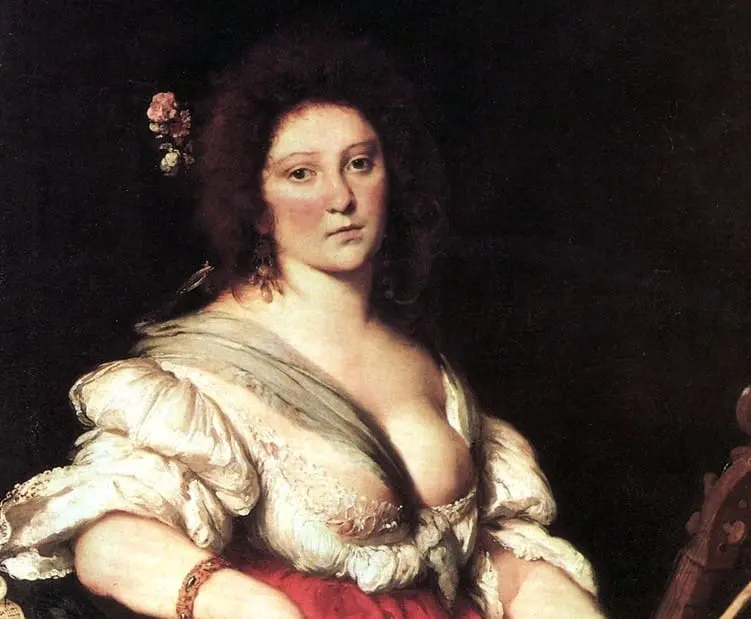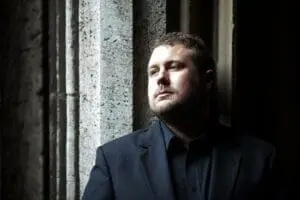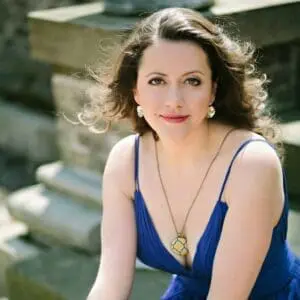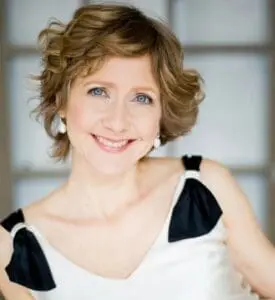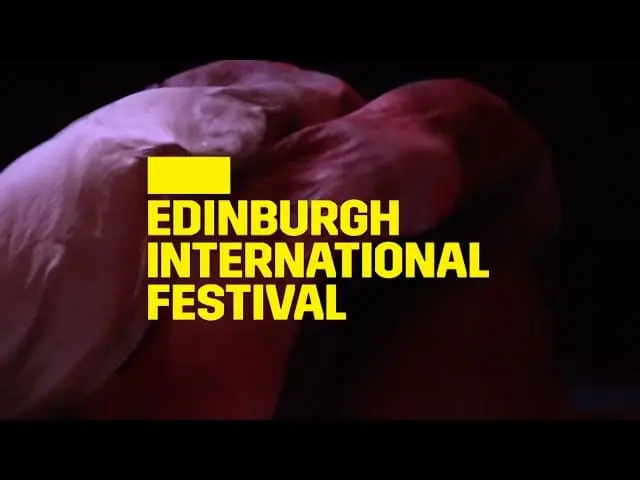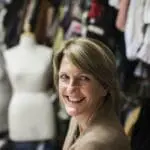Opera lovers on the West Coast are in for a treat this summer. The Vancouver Bach Festival, presented by Early Music Vancouver (EMV), is featuring, amongst its varied offerings, some vocally-focused concerts that boast a range of both Canadian and international talent.
The music of Monteverdi, Palestrina, Schütz, Morales, and others will be presented Aug. 6th in a program inspired by the biblical Song of Solomon, designed and led by Alex Potter. The British countertenor was introduced to this text via his experience as a boy chorister, singing choral evensong at Southwark Cathedral. Potter is known for his performances of early music staples such as Bach’s B-Minor Mass with the Concertgebouw Orchestra under Philippe Herreweghe, Handel’s Israel in Egypt at the Wiener Konzerthaus with Lars Ulrik Mortensen and works by Bach and Telemann which he performed with the Arcangelo ensemble under Jonathan Cohen at London’s Wigmore Hall. The EMV program explores various sonic approaches to the sensuous Song of Songs text, including works by two women composers, Maria Xaveria Perucona and Lucrezia Orsina Vizzana. Held at Vancouver’s Christ Church Cathedral, the evening also features the vocal talents of British tenor Samuel Boden, German soprano Dorothee Mields, English bass-baritone Matthew Brook, and Canadian soprano Suzie LeBlanc (who some may remember from Lost Song, which won Best Canadian Feature Film at the 2008 Toronto International Film Festival with LeBlanc in the lead). Along with the various musical settings, there will also be readings of selections from the Song of Songs.
The following evening in the same venue, American lyric soprano Amanda Forsythe will present a selection of early Handel cantatas with Pacific MusicWorks, a Seattle-based group specializing in chamber opera, oratorio and performance art from all eras. The program includes Handel’s pungently longing “Col partir la bella Clori” and the demanding “Agrippina condotto a morire”, which he composed in the early 1700s. The latter cantata details Roman Empress Agrippina’s thoughts and reactions as she is led to her execution, ordered by her own son Nero, who she contrived to be placed on the throne. (Handel subsequently wrote a full-length opera named after the Empress in 1710.) The cantata highlights a wide range of emotions, from anger to desperation, to reconciliation and finally, acceptance. It demands vocal flexibility as well a dramatic, if highly controlled expression—something entirely suited to Forsythe’s formidable talents.
The Boston-based soprano is one of the current stars of the early music scene, having sung Orphée et Eurydice with John Elliot Gardiner at Versailles and Royal Opera House, Covent Garden (2015); Almira (Handel’s first opera) with Boston Early Music Festival (2017) and Hercules under Harry Christophers with Boston’s Handel and Haydn Society (2018). With a voice described by the Boston Globe as “clear, florid, and warm at the same time,” Forsythe is set to perform the title role in Handel’s Semele with Opera Philadelphia this September; Pamina in Komische Oper Berlin’s whimsical production of Die Zauberflöte, as well as Marzelline in Fidelio at ROH under the baton of Sir Antonio Pappano in March 2020. Her Aug. 7th program in Vancouver will also feature the music of Arcangelo Corelli.
Sopranos LeBlanc and Mields return to Vancouver Bach Festival on Aug. 8th, where they’ll present a concert of the music of Barbara Strozzi, whose 400th anniversary will have just passed, on the 6th. The Italian Baroque composer, who was also a noted singer in her day, published eight collections of madrigals during her lifetime—a rare feat for a 17th– century European woman. This was made possible, in part, due to the patronage of the Grand Duchess of Tuscany, Vittoria della Rovere, who was highly supportive female artists’ work. 17th-century Venetian opera specialist Beth Glixon has written that Strozzi was reportedly “the most prolific composer—man or woman—of printed secular vocal music in Venice in the middle of the century” (The Musical Journal, 1997). Most of Strozzi’s work was secular (aside from one volume of sacred music) and much of it written for soprano.
Her first published volume, ll primo libro de madrigali, includes 25 works, the first of which, “Mercé di voi”, opens the LeBlanc/Mields concert. The duet for two female voices makes clear Strozzi’s intention to be celebrated throughout the ages (she sees herself as “a new Sappho”), by combining words and sonic texture in spellbinding, sensuous ways. Sensuality is revealed quite differently in “L’Eraclito amoroso (Udite amanti),” an anguished work about love deceived, where Strozzi cleverly subverts the chaconne form. This is best heard in the final notes, where the (solo) soprano’s line harmonically clashes with the accompaniment to convey the tragedy. Who says modern music has all the dissonance?
And, in one of the many ways the Vancouver Bach Festival is making itself known outside the strict confines of Baroque music, an Aug. 8th concert featuring David Jalbert shows a savvy instinct for combination. The Canadian pianist will play Shostakovich’s monumental 24 Preludes and Fugues, Op. 87 its entirety, along with Bach’s Toccata in C minor, BWV 911.

